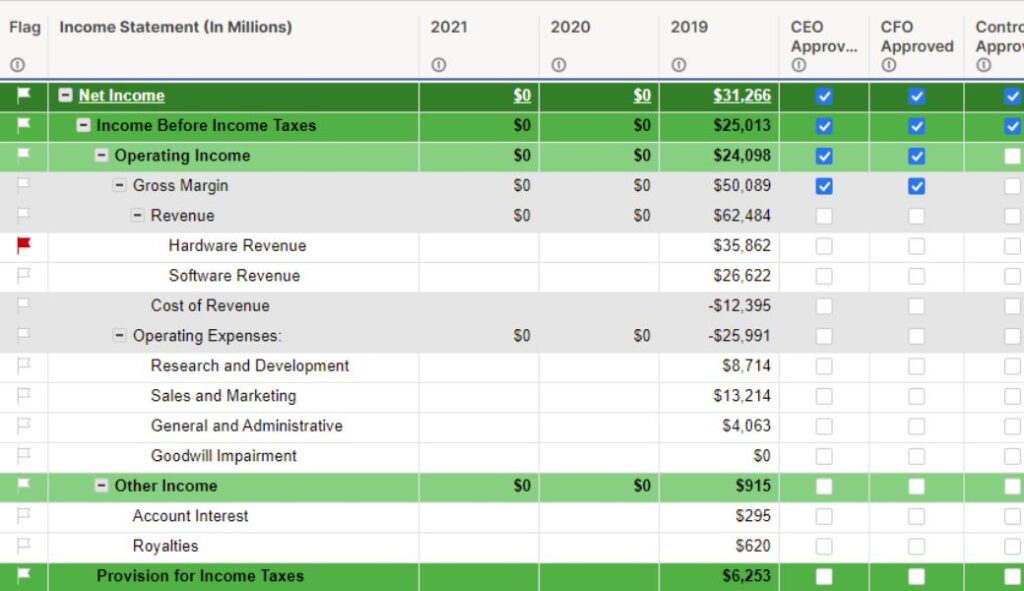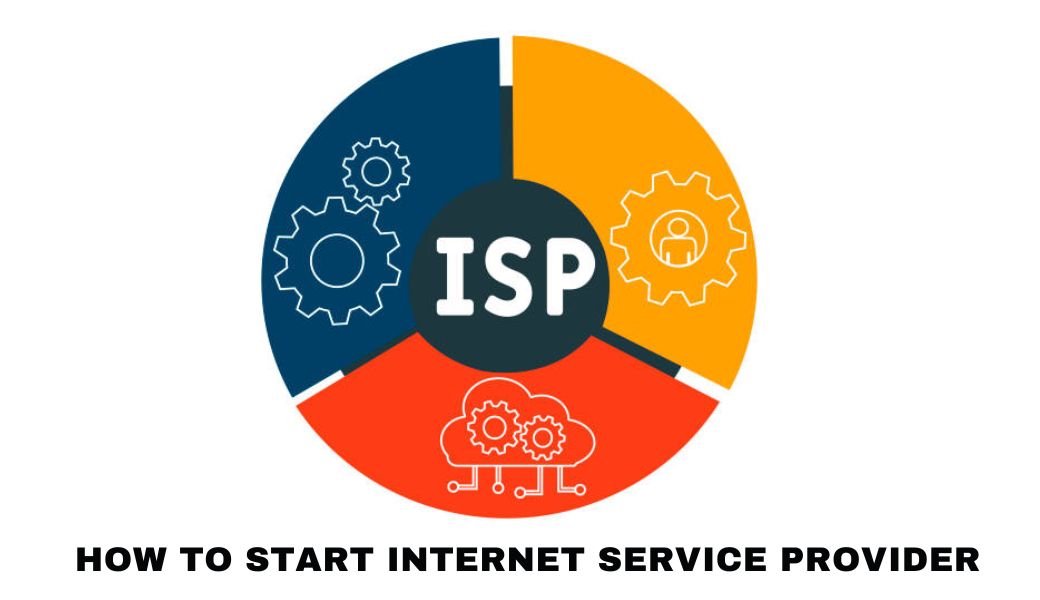The Internet, in general, is everything surrounding our lives, every touch from all devices. There are around 66% of people use the internet, according to Statista. This wide development of internet users expands the opportunities for any who wants to start an ISP ( Internet Service Providers).
Understanding the intricacies of how to start an internet provider business will help you eliminate potential problems and increase your chances of success. However, your willingness and dedication are not enough! You must equip yourself with the necessary knowledge before spending any amount of money in this field.
This comprehensive guideline will list the 8 straightforward steps for your business path, including the current market starting an internet service business.
Why Should You Start an Internet Service Provider Company?
Have you ever thought about how to start an internet provider business (ISP)? An ISP offers a unique opportunity to achieve both financial success and positive social impact.
This continuous demand generates constant and predictable revenue. Long-term customer contracts are the primary source of recurring revenue for ISPs. Consider a predictable monthly income that supports your company’s growth and ensures your financial future.
However, the influence goes beyond money. Many communities, particularly rural areas, do not have access to dependable internet infrastructure. Establishing a new ISP might be a lifeline for your community.
Providing high-speed internet connections opens up a world of possibilities, including access to online learning materials for education, getting involved in the global economy, and linking inhabitants to cutting-edge medical care.
How To Start An Internet Provider Business
1. Market Research and Competitor Analysis
1.1 Market Research
Market Research is the basic one that every who starts a business “must do” as the first step in any case.
For simple cases in which you tend to build a small restaurant in your local area, search for the number of similar restaurants, customer behavior, menu planning, ingredients providers, tax, and more. There are tons of factors that must be listed in your list to start a successful business, especially for IPS, which is a quite complex type of business
Have a look at these essential criteria for market research!
- Demand Analysis: What is the number of potential clients in your target area? Analyzing the population demographics, internet usage, and infrastructure currently.
- Market Size and Growth: Investigate the whole size of your region’s ISP market and its predicted growth rates. This helps you assess the potential of your business.
- Customer Preferences: What are the current pain points for internet users in your area? Are they unsatisfied with internet performance, dependability, cost, or customer service? Summarizing these demands will enable you to create a compelling service offering.
1.2 Competitor Analysis

Competitor Analysis plays a crucial role that directly affects your conversion and revenue. Spend time analyzing several ISP businesses in your area, including the service packages ( speed, data limits, pricing), customer service reputation, and target demographics.
Are there any underserved niches? To stand out, consider specializing in rural areas, high-speed business ideas, or providing great customer service.
2. Unique Selling Proposition (USP)
A vital element in how to start an internet service provider business is finding a Unique Selling Proposition (USP). This point will directly affect the customer’s decision to choose your services instead of competitors.
Asking some simple questions like Who are you trying to reach? Are you focusing on residential customers, businesses, or a niche market? Highlighting your strengths is also a vital factor, in offering superior benefits to your customers such as speed, support lifetime, pricing, or cutting-edge technologies.
Take this as an example: “offering symmetrical gigabit internet plans with guaranteed 99.9% uptime.”
Remember, your USP should be clear, concise, and memorable.
3. Internet provider business plan
A comprehensive business plan serves as a vital roadmap in starting an internet provider company. Including the company’s goals, target customer conversion rates, marketing methods, and financial estimates. This plan acts as a compass, directing your firm to success.

There’s a variety of templates on Google or some specialist platforms such as Quora, Reddit as U.S. Small Business Administrations, SCORE (non-profit resources), and Bplans. If you are looking to create an e-commerce or any type of other business, Shopify and HubSpot also provide a comprehensive plan.
Developing a well-structured business plan demonstrates your commitment and helps you secure funding, attract potential partners, and navigate the complexities of launching Remember, these are just starting points. Tailor the content to your specific ISP business and niche market.
4. Supplies and Technology
It is a reality that supplies and technology form the foundation of your ISP business. There are 3 crucial criteria network infrastructure, back-office systems, and software
4.1 Network Infrastructure
- Backbone Network Access: Join the internet superhighway to purchase bandwidth and sell it to clients (either construct your fiber network or collaborate with carriers).
- Fiber Optic Cables: The most dependable and fast option, but installation costs are high.
- Coaxial Cables: Slower and more prone to interference, but a more cost-effective solution utilizing the current cable TV infrastructure.
- Depending on the coverage area, wireless equipment (towers and antennas) is required for fixed wireless internet.
- Network hardware, such as switches and routers, provides effective traffic control, security, and data flow.
4.2 Equipment on-site for customers (CPE):
- Modems: Transform internet signals into a format that clients’ devices such as computers, and phones can use.
- Routers: Allow several devices to connect by controlling data flow within a customer’s network.
- Wi-Fi range is increased inside a customer’s property by using wireless access points, or WAPs.
4.3 Software and Back-Office Systems:
- CRM (customer relationship management): Handles billing, support, service requests, and customer accounts.
- Service activation, billing, and account setup are all automated with billing and provisioning software.
- Tools for Network Management and Monitoring: Tracks and pinpoints problems with the performance of the network continuously.
- Security software guards against online threats to your network and client information.
>>> Read more another useful article: How to start online marketing business
5. Legal Considerations
The ISP industry was created along with complicated laws such as consumer protection laws, copywriting, intellectual property, data security & privacy, contractual Agreements, licensing & permits. Understanding these regulations helps you to delete the risk, ensures compliance with rules, and enhances stable development in the long term.

For instance, the debate surrounding net neutrality regulations in the US by Cornell Law School’s Legal Information Institute (LII) Wex. For ISPs, the idea of net neutrality is crucial from a legal standpoint.
It alludes to the idea that Internet service providers need to handle all Internet traffic equitably, independent of where it originates or ends up. This implies that content prioritization and speed throttling for particular websites or services should not be allowed by ISPs.
It is strongly advised that you invest in legal assistance, particularly in the early phases of starting your ISP firm. Recall that having legal information helps you make wise decisions that will protect your ISP in the long run.
6. Financial Planning
Financial planning is an intrinsic value of how to start an internet business and plays a vital role for a sustainable and successful company by the short-term, mid-term, and long-term goals.

For start-ups, estimating the expenses for important equipment, infrastructure, licenses, permissions, marketing, staff, tax, and tons of expenses. Consider options like personal savings, loans, or seeking investors to bridge the gap between initial investment and sustainable revenue.
You should have a serious attitude toward cash flow management by creating a strategy to control cash flow so that there are enough resources to pay for costs before major sources of income are identified.
You can refer to helpful sources like industry reports, business planning software, and financial advisors for the best market view to adjust the plan dynamically.
7. Building a Strong Online Presence
As We mentioned above about the impressive number of internet users in 2024. Owning an online website or any type of online presence will help you to approach an ideal customer effectively.
As suggested by Techno-Solucionies, the company should develop both social media and a website which are different in the types of processing. Social media encourages businesses to actively engage with customers, and the website is the place for uniqueness and personalization.
On the other hand, developing a user-friendly website that clearly communicates your service offerings, pricing plans, and coverage areas. For a better user experience, incorporate tools like live chat, a customer portal, online signup, etc for the best user experience.
8. Marketing

In the fast-moving market of how to start an internet service provider business, drawing in customers and building your brand is key. Having a smart marketing plan is really important to spread the word about your company and persuade people to pick your services.
8.1 Engage to Customers
Chatting with potential customers to understand what they don’t like about their current service providers. Use sites like Yelp to see their complaints and ask them more to get a clear picture. Common issues include slow internet, connection drops, or high costs.
To address these, offer faster internet for gamers, a single price for everything, and solid customer support.
8.2 Plan for marketing strategies
Focus your ads where you know you can provide service to keep from wasting time and materials. Begin by handing out flyers in areas you cover and get people to talk about your service by giving them something, like a free month if they bring in new customers.
Use clear maps of where you serve to make accurate lists of people you might want to mail to.
Related posts:
How to start a clothing brand with Shopify – A Complete Guide For Your Store
Running your Internet Providers Business – Personal Message
It’s the fact that creating an ISP business requires dedication, preparation, and a commitment to customer expectations. While the 8 steps involved in how to start an internet provider business may be complicated for new sellers, it still provides a clear roadmap for long-term development















